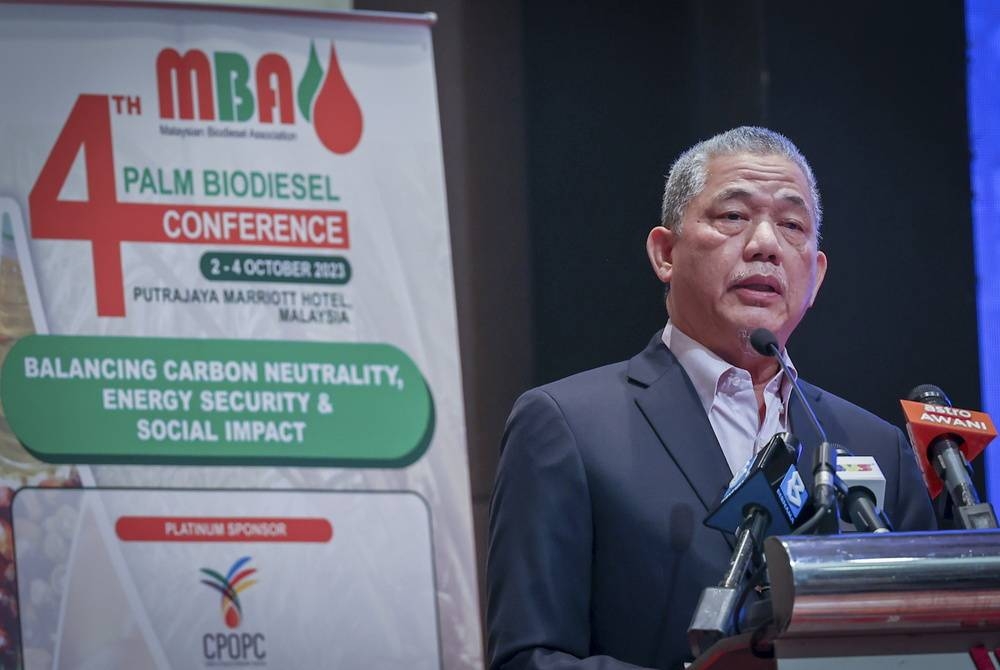Industry players want govt to review windfall profit levy price for Sabah, Sarawak - Fadillah

PUTRAJAYA - The Plantation and Commodities Ministry (MPC) has submitted a proposal to the Finance Ministry for the windfall profit levy (WPL) price for Sabah and Sarawak to be at 1.5 per cent under Budget 2024, compared to the current 3.0 per cent.
Deputy Prime Minister and MPC Minister Datuk Seri Fadillah Yusof said the matter was raised by industry players during a dialogue held by the ministry.
"This was one of the things that they had raised. They are not objecting to the WPL, but if it is imposed, they want to look at how the levy can benefit the industry, including in terms of incentives and programmes such as oil palm replanting,” he said.
Fadillah said this to reporters after the launch of the 4th Palm Biodiesel Conference and the flag-off of Petronas’ first palm biodiesel B100-fuelled road tanker here today.
Yesterday (Oct 2), the Malaysian Palm Oil Association (MPOA) urged the government to restore the WPL price.
To account for rising production costs, the association requested the government to raise the WPL price by RM500 per tonne of crude palm oil (CPO) to RM3,500 per tonne for Peninsular Malaysia, from RM3,000 per tonne currently, and to RM4,000 per tonne from RM3,500 per tonne for Sabah and Sarawak.
The MPOA also called for tax incentives to support large-scale replanting initiatives, recognising its critical role in protecting the productivity of the sector to support its supply chain and maintain competitiveness.
Earlier in his speech, Fadillah said the palm biodiesel industry was an integral part of the palm oil industry and its growth would stimulate local demand for CPO, empowering it to set prices rather than merely following the market trends.
"As an example, our current B10 (biodiesel programme) implementation in the transport sector is just beginning and we envision moving towards nationwide B20 implementation which is expected to increase CPO consumption to over one million tonnes per annum,” he said.
Fadillah said these commitments were firmly embedded in various national government policies, including the 12th Malaysia Plan, National AgriCommodity Policy 2021-2030, National Automotive Policy 2020 and National Energy Policy 2022-2040. - BERNAMA
Download Sinar Daily application.Click Here!














